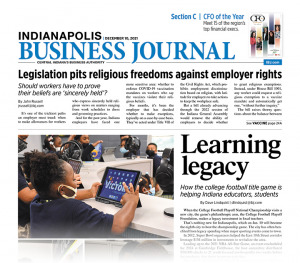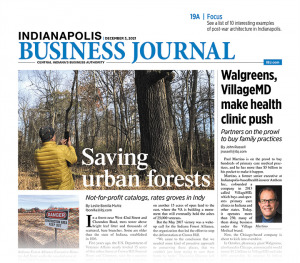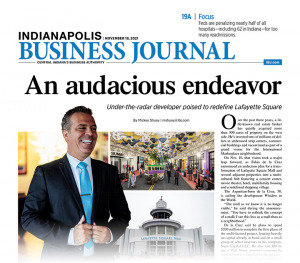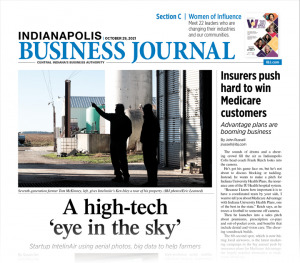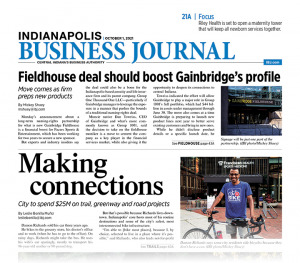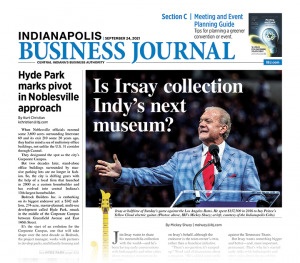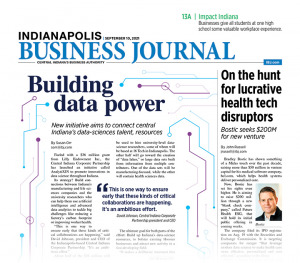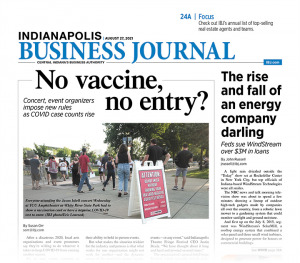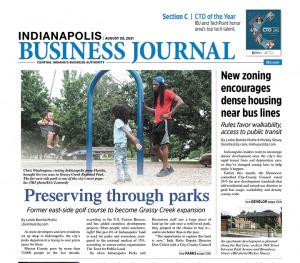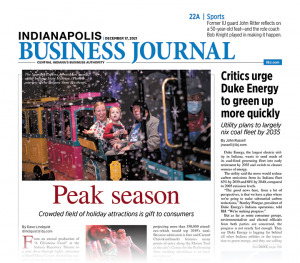
DEC. 17-23, 2021
Duke Energy, the largest electric utility in Indiana, wants to send much of its coal-fired generating fleet into early retirement by 2035 and switch to cleaner sources of energy. But as John Russell reports, some consumer groups, environmentalists and elected officials contend the progress isn’t nearly fast enough. Also in this week’s issue, Leslie Bonilla Muñiz explains how an unusual public-private collaboration is renovate a 160-unit affordable housing complex on the north-east side and keep it affordable for the next three decades. And Dave Lindquist has a roundup of the holiday season’s main attractions as cultural institutions vie for seasonal dollars.

